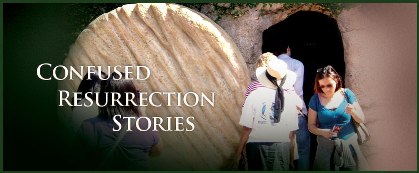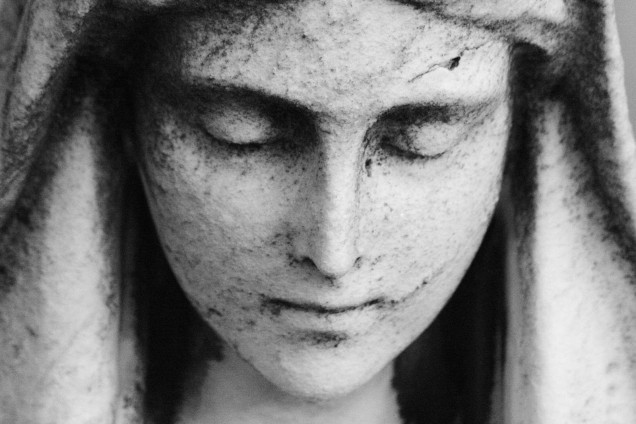Question:
Dear Rabbi,
What can you answer to a “Christian” who claims that the Jews killed Jesus? I was too angry to think clearly of a good answer for that.
Thank you.
P.S. . . It’s hard to be a Jew in Hawaii sometimes!
Answer:
You shouldn’t get so angry at Christians who insist that the Jews killed Jesus. Your outrage may be directed in the wrong direction. It’s more likely that your accuser blindly embraced the dark depiction of the Jews as we were cast by the authors of the New Testament. The odious charge of deicide is clearly leveled against the Jewish people in the Christian Scriptures. From the narratives in the Gospels and letters of Paul, there can be no doubt that the Jews alone are responsible for Jesus’ death. In his earliest letter, Paul writes,
“…even as they have of the Jews, who both killed the Lord Jesus, and their own prophets, and have persecuted us; and they please not God, and are contrary to all men, forbidding us to speak to the Gentiles that they might be saved, to fill up their sins always; for the wrath is come upon them to the uttermost!”
(I Thessalonians 2:14-16)
Moreover, not does the New Testament viciously condemn the Jews for the crime of deicide, but shockingly, the Romans are entirely exonerated in the Gospels. This selective vilification is not only directed toward those Jews who allegedly plotted and collaborated in Jesus’ crucifixion, but it places the responsibility for the death of Jesus on the Jewish people as a whole. Virtually all the Church Fathers regurgitate this devastating charge, casting the Jews as “Christ-killers.”
Accordingly, the Holy Friday liturgy of the Eastern Orthodox Church and Byzantine Catholics uses the expression “impious and transgressing people,” ((Ware, Metropolitan Kallistos and Mother Mary. The Lenten Triodion. St. Tikhon’s Seminary Press, 2002, p. 612 (second stichos of Lord, I Have Cried at Vespers on Holy Friday) )) and the strongest expressions are in the Holy Thursday liturgy, which includes the same chant, after the eleventh Gospel reading, but also speaks of “the murderers of God, the lawless nation of the Jews,” ((Ware, Metropolitan Kallistos and Mother Mary. The Lenten Triodion. St. Tikhon’s Seminary Press, 2002, p. 589 (third stichos of the Beatitudes at Matins on Holy Friday) )) and, referring to “the assembly of the Jews,” prays: “But give them, Lord, their reward, because they devised vain things against Thee.” ((Ware, Metropolitan Kallistos and Mother Mary. The Lenten Triodion. St. Tikhon’s Seminary Press, 2002, p. 586 (thirteenth antiphon at Matins on Holy Friday). The phrase “plotted in vain” is drawn from Psalm 2:1.))
Until the middle of the 20th century most Christian churches included references to deicide in their hymns and liturgy. The following, for example, is a verse from a hymn written in 1892 for use in the Church of England to call upon God to convert the Jews to Christianity:
Though the Blood betrayed and spilt,
On the race entailed a doom,
Let its virtue cleanse the guilt,
Melt the hardness, chase the gloom;
Lift the veil from off their heart,
Make them Israelites indeed,
Meet once more for lot and part
With Thy household’s genuine seed. ((“Thou, the Christ Forever One,” words by William Bright, from Supplemental Hymns to Hymns Ancient and Modern, 1889) ))
The author of the first Gospel goes out of his way to portray Roman leaders at the time of the crucifixion as patsies of the Jews, wanting no part in Jesus’ death. Matthew casts Pontius Pilate, the Roman Governor of Iudaea Province (the Roman combination of Judea proper, Samaria and Idumea), as a reluctant accomplice to Jesus’ death, and he symbolically washes his hands of the gruesome affair. ((Matthew 27:22-25))
In spite of the numerous contradictions contained in the four Gospels of the Passion Narratives, the New Testament unanimously casts Pilate as a thoughtful Roman leader, hopelessly trying to reason with the lynch-mob mentality of the Jewish crowd, arguing for Jesus’ vindication. The Jews, on the other hand, are consistently portrayed as bloodthirsty, maniacal, and a debased rabble, demanding that Jesus is put to death. The benign caricature of Pontius Pilate in the Gospels, on the other hand, is one of a melancholy, weak leader who finally relents to the murderous demands of the Jews, and reluctantly hands Jesus over to be crucified.
Mark also depicts Jesus as innocent of committing any crime against Rome, and Pilate as extremely reluctant to execute Jesus, blaming the Jews for his death. ((Mark 15:8-15)) In Matthew, Pilate washes his hands of Jesus’ execution and grudgingly sends him to his death. ((Matthew 27:13-25))
In Luke’s Gospel, Pilate not only agrees that Jesus did not conspire against Rome, but Herod Antipas, the tetrarch, admired Jesus as a saintly miracle worker, ((Luke 23:8)) and finds nothing treasonous in Jesus’ actions. ((Luke 23:3-23)) In the Book of John, shockingly, the warm, amiable feelings express between Pilate and Jesus are mutual, where Pilate finds no fault in Jesus, ((John 18:38)) and Jesus finds no sin in Pilate. ((John 19:11))
It could be said that Matthew, singlehandedly, is responsible for the first blood libel against the Jews. The first Gospel claims that after the Roman governor begged the frenzied crowd to spare Jesus’ life, the Jews answer him, “We take his blood upon ourselves and our children!” In these chilling verses, Matthew provides deep insight as to how the mind and soul of your acquaintance were poisoned by the slander conveyed against our people in the New Testament. Pilate said to the Jews:
“What then shall I do with Jesus who is called Christ?” They all [the Jews] said to him, “Let Him be crucified!” Then the governor said, “Why, what evil has He done?” But they cried out all the more, saying, “Let Him be crucified!” When Pilate saw that he could not prevail at all, but rather that a tumult was rising, he took water and washed his hands before the multitude, saying, “I am innocent of the blood of this just Person. You see to it.” All the people answered and said, “His blood be on us and on our children.”
(Matthew 27:22-25)
The Gospel of John has the dubious distinction of being both the most popular Gospel (widely considered the most “spiritual” of the canonical Gospels) and the most anti-Jewish. The term the “Jews” (Ἰουδαῖος – pronounced Ioudaios) in the Book of John functions as a hostile collective stereotype and is identified with “evil” and the “devil.” ((John 8:44)) Like the Synoptics, the fourth Gospel also completely exonerates the Romans for the crucifixion of Jesus while holding the Jews entirely accountable for his execution. ((John 19:11)) In a conversation between Jesus and Pilate, Jesus goes out of his way to comfort the Roman procurator of Judea assuring him that he has no power of his own, and therefore,
“the one who delivered me to you [the Jews] bear the greatest iniquity.”
(John 19:11)
In fact, nowhere in the New Testament are the Romans ever condemned for the crucifixion of Jesus. This cannot be said about the Jews. For example, in the Book of Acts, the Jews alone are excoriated and vilified for crucifying Jesus. Notice how the Roman culpability is never mentioned anywhere in this odious text:
Therefore let all Israel be assured of this: God has made this Jesus, whom you crucified, both Lord and Christ.
(Acts 2:36)
It is not difficult to understand why Pontius Pilate is venerated as a saint in the Ethiopian Orthodox Church. According to Eastern Orthodox traditions, Pilate committed suicide out of remorse for having sentenced Jesus to death. ((“Pontius Pilate.” Catholic Encyclopedia. New York: Robert Appleton Company. 1913.))
In contrast to the gracious, benign caricature of Pontius Pilate conveyed in the Gospels, according to noted historians, including Philo and Josephus, the Roman Governor was renowned for “his violence, thefts, assaults, abusive behavior, endless executions, and savage ferocity” ((Philo, On The Embassy of Gauis. Book XXXVIII 299-305.)) and as a “cruel despot who executed troublemakers without a trial and ordered his soldiers to randomly attack, beat, and kill scores of Jews.” ((Josephus, Jewish War 2.9.2-4)) Not surprisingly, this record of Pilate’s brutality is mentioned nowhere in the New Testament. A cruel tyrant such as Pilate would not have hesitated to execute any leader whose followers posed a potential threat to Roman rule. The notion that the Jews would or could demand of Pilate to crucify Jesus is preposterous.
If you stop and think about it, Christendom’s indictment against the Jews for crucifying Jesus is ludicrous. On the one hand, the New Testament insists that it was the most wonderful thing for mankind to have an atonement through Jesus’ death. On the other hand, the Jews are vilified by the same New Testament for killing him. If you take New Testament theology to its full logical conclusion, the Jews should have been praised in the New Testament for making this atonement possible, not condemned. Does all this make any sense?
With regard to your request for advice on how to answer the Christian who accuses the Jews of killing Jesus, remember that you are dealing with someone who is operating out of a venomous hate for the Chosen People, the nation Who God regards the “apple of His eye” (Zechariah 2:8). He is probably not interested in understanding why his charges are preposterous. Instead, remind him that his Bible says that the Almighty will bless those who bless Israel, and curse those curse Israel (Genesis 12:3). In short, Jew-hatred is a sin that damns the soul.
Bear in mind that although, as a result of this despicable charge of deicide, countless Christians have committed unspeakable atrocities against the Jewish people, many decent Christians condemn it. The reason for their condemnation, however, is often varied. There is no doubt that many Christians denounce anti-Semitism because of their genuine affection for the Jewish people. Unfortunately, many Christians who loudly declare their love for the Jewish people and condemn this charge of deicide have an ulterior motive: They do not want to be perceived by their potential Jewish converts to Christianity as being anti-Semitic or associated with Christendom and its long, dark history of hate.
Sincerely yours,
Rabbi Tovia Singer



